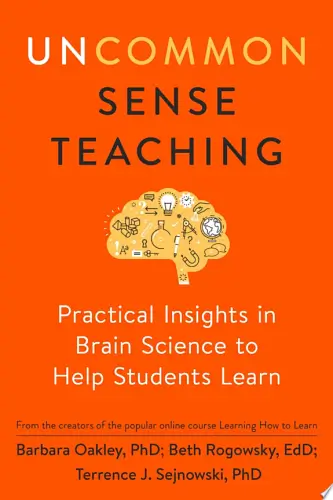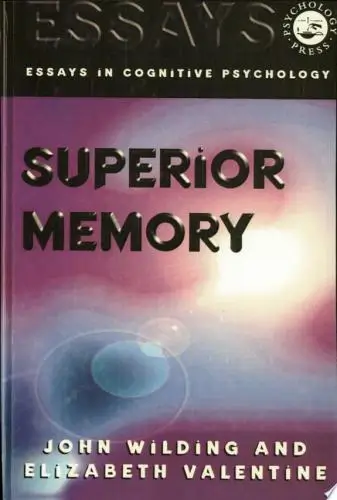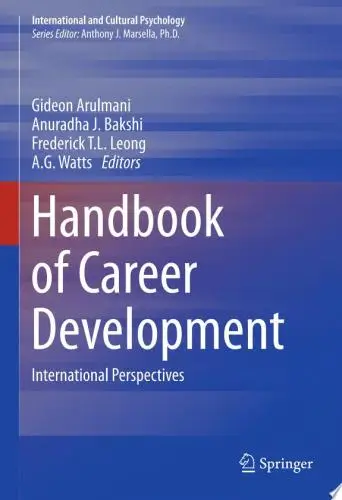Thinking, Fast and Slow
What's it about?
Thinking, Fast and Slow by Daniel Kahneman is a groundbreaking book that explores the two systems that drive the way we think. System 1 operates quickly and automatically, relying on intuition and emotions. System 2 is slower, more deliberate, and requires conscious effort. Kahneman delves into the biases and heuristics that affect our decision-making process, and provides insights into how our minds work. Through engaging anecdotes and rigorous research, the book challenges our assumptions about rationality and highlights the importance of understanding the limitations of our thinking processes.
About the Author
Daniel Kahneman is an Israeli-American psychologist and Nobel laureate known for his groundbreaking work in the field of behavioral economics. Born in 1934, he is renowned for his research on cognitive biases and decision-making processes. His book "Thinking, Fast and Slow" became a bestseller, exploring the two systems that drive human thinking. Kahneman's work has had a significant impact on various disciplines, including psychology, economics, and public policy. He was awarded the Nobel Prize in Economic Sciences in 2002 for his contributions to understanding human judgment and decision-making.
5 Key Ideas of Thinking, Fast and Slow
Harnessing Cognitive Ease: Your Brain's Shortcut
Leverage cognitive ease by recognizing when your brain is taking shortcuts, resulting in potential errors.
Imagine effortlessly driving home when suddenly you realize you've missed a turn; your brain was on autopilot. This illustrates cognitive ease—smooth mental processing leading us to overlook details.
- Promotes quicker decision-making: Cognitive ease allows us to navigate familiar tasks efficiently.
- Encourages error-prone behavior: When too comfortable, critical thinking declines, leading to mistakes.
- Influences perception: Familiar and easy-to-process information feels more truthful.
Pause and ask yourself if a choice you're making feels too easy—this can help detect potential oversights.
Mistaking cognitive ease for accuracy; ease doesn't equal correctness.
Know Your System 1 and System 2
Understand the interplay between your impulsive System 1 and deliberate System 2 to make balanced decisions.
Consider the instant reflex of slamming brakes when a pedestrian suddenly crosses—System 1 in action—versus carefully planning a long-distance trip, engaging System 2.
- System 1 is fast but vulnerable to errors: It's responsible for intuitive choices that can be biased.
- System 2 is slow but more reliable: It facilitates analytical thinking and problem solving.
- Balance is crucial: Effective decisions often require using both systems appropriately.
Next time you're making an important decision, consciously slow down to engage your analytical System 2.
Over-relying on just one system; both are needed for balanced decision-making.
Beware the Illusion of Memory
Realize that memories are often reconstructed, not recalled, impacting the accuracy of past experiences.
Recall a childhood event retold over family gatherings, each narration subtly altering your memory—demonstrating the constructive nature of memory.
- Memory is reconstructive: We piece together fragments rather than playback a precise recording.
- Subject to biases: Emotions and beliefs shape what we remember, often distorting facts.
- Confident recall doesn’t imply accuracy: People often misjudge their memory reliability.
Before acting on a memory, verify details through additional sources or contextual clues.
Assuming confidence equals correctness; memory confidence should be questioned.
Deeper knowledge. Personal growth. Unlocked.
Unlock this book's key ideas and 15M+ more. Learn with quick, impactful summaries.
Read Full SummarySign up and read for free!
Thinking, Fast and Slow Summary: Common Questions
Thinking, Fast and Slow by Daniel Kahneman is an illuminating voyage into the dual engines that power human thought: intuitive, rapid-fire judgments and deliberate, analytical decisions. Kahneman, a Nobel laureate, doesn't just lay bare the intricacies of the mind; he offers a masterclass on the biases and heuristics that often lead us astray and how to navigate around them.
Kahneman's prowess in weaving complex psychological theories into accessible narratives is commendable. Through a blend of personal anecdotes, rigorous research, and thought experiments, he offers readers a window into the fascinating world of behavioral economics. While the depth of content is truly enriching, some sections might feel slightly academic to the casual reader. However, this rigor serves as a testament to the book's foundational role in understanding human decision-making.
In the ever-growing field of behavioral science literature, Thinking, Fast and Slow stands as a monumental pillar. After journeying through its profound pages, I'm inclined to bestow it a 5 out of 5. Kahneman's magnum opus not only reshapes our understanding of the mind but also challenges us to be more introspective and deliberate in our everyday choices.
Experience Personalized Book Summaries, Today!
Discover a new way to gain knowledge, and save time.
Sign up for our 7-day trial now.
No Credit Card Needed

Similar Books

Learning Habits
Sarah Nicholl
Uncommon Sense Teaching
Barbara Oakley, PhD
Field Trip Mysteries: The Crook that Made Kids Cry
Steve Brezenoff
Superior Memory
John M. Wilding
Peak
Anders Ericsson
Forex Trading QuickStart Guide
Troy Noonan
Demystifying Climate Models
Andrew Gettelman
The Hobbit
J.R.R. Tolkien
Handbook of Career Development
Gideon Arulmani
My Oxford Year
Julia WhelanTrending Summaries

Peak
Anders Ericsson
Never Split the Difference
Chris Voss
Smart Brevity
Jim VandeHei
The Psychology of Money
Morgan Housel
The First 90 Days
Michael D. Watkins
Atomic Habits
James Clear
Thinking, Fast and Slow
Daniel Kahneman
The Body Keeps the Score
Bessel van der Kolk M.D.
The Power of Regret
Daniel H. Pink
The Compound Effect
Darren HardyNew Books

Forex Trading QuickStart Guide
Troy Noonan
Comprehensive Casebook of Cognitive Therapy
Frank M. Dattilio
The White Night of St. Petersburg
Michel (Prince of Greece)
Demystifying Climate Models
Andrew Gettelman
The Hobbit
J.R.R. Tolkien
The Decision Book
Mikael Krogerus
The Decision Book: 50 Models for Strategic Thinking
Mikael Krogerus
Fichte
Johann Gottlieb Fichte
Do No Harm
Henry Marsh
